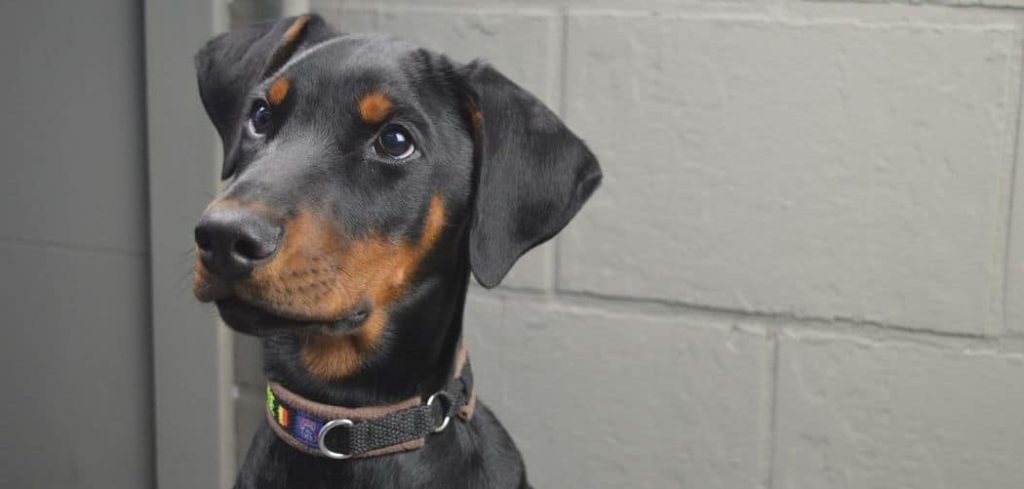Sudden excessive licking at night in dogs can be alarming and may indicate underlying discomfort or stress. Observing this behavior consistently should not be ignored, as it could point to medical or behavioral issues.
We outline the common causes of sudden excessive licking in dogs at night, what you can do, and when to seek veterinary help.
Dog Licking Excessively Suddenly at Night — Why It Happens
Sudden excessive licking at night by a dog is often a symptom of various underlying conditions that may range from minor irritations to more serious health concerns. Dogs may lick due to skin irritations, oral discomfort, anxiety, allergies, or even gastrointestinal issues. Environmental factors such as changes in routine or stressors can also trigger this behavior.

Sudden Excessive Licking in Dogs at Night: Common Causes
Allergies
Allergies can trigger intense licking, especially at night when dogs are confined and restless.
Food allergies or environmental allergens like dust mites, pollen, or mold can cause itchy skin or discomfort.
Owners may notice redness, swelling, or irritated skin patches. Persistent scratching and licking due to allergies can lead to secondary infections if untreated.
Read more: Dog licking excessively (What it means)
Dental Problems
Oral pain from dental issues, such as gum disease, broken teeth, or infections, often leads dogs to lick their lips, paws, or surrounding areas excessively.
At night, when activity levels are lower, the dog may focus on licking due to increased awareness of discomfort. Bad breath, drooling, and difficulty eating may accompany this symptom.
Anxiety or Stress
Sudden behavioral changes, including excessive licking, can indicate anxiety or stress.
Nighttime can be particularly challenging for dogs experiencing separation anxiety, fear of darkness, or environmental changes.
Signs such as pacing, whining, or restlessness often appear alongside licking behaviors.
Skin Irritations or Infections
Dermatitis, hot spots, or fungal infections can cause dogs to lick excessively, particularly at night when other distractions are minimal.
Owners may notice inflamed, red, or scabbed areas, hair loss, or an unpleasant odor. Prompt attention is crucial to prevent worsening of the infection.
Gastrointestinal Discomfort
Nausea or stomach upset can manifest as licking, especially when dogs attempt to soothe their discomfort.
Nighttime may accentuate this behavior if the dog has been less active during the day. Vomiting, diarrhea, or reduced appetite can accompany this sign.
Neurological or Hormonal Conditions
Though less common, neurological issues or hormonal imbalances, such as hypothyroidism, can lead to sudden compulsive behaviors, including excessive licking.
These conditions often develop gradually but may appear more noticeable at night. Changes in energy levels, weight, or coordination may also be observed.
What to Do If Your Dog Is Suddenly Licking Excessively at Night
Monitor your dog’s behavior closely to identify triggers and patterns. Maintain a consistent nighttime routine and provide comfort through gentle reassurance and a calm environment.
Check for visible signs of skin irritation, wounds, or oral issues that may require attention.
Ensure your dog has a proper diet and hydration, as nutritional imbalances can exacerbate licking behaviors.
Consider environmental enrichment during the day to reduce nighttime anxiety and restlessness.
When to Call or Visit Your Vet
Seek veterinary attention immediately if your dog exhibits severe discomfort, open sores, bleeding, or signs of infection.
Persistent vomiting, diarrhea, lethargy, or sudden behavioral changes also warrant prompt examination.
Dental pain that prevents eating or drinking should be addressed without delay. If anxiety or compulsive licking is severe and unmanageable at home, a veterinarian may recommend behavioral therapy or medication.
Read more: Dog Licking Excessively at Night (Here’s why)
Key Takeaway
Excessive licking at night can signal a variety of medical or behavioral issues, ranging from allergies and dental problems to anxiety or gastrointestinal discomfort.
Observing your dog’s behavior, identifying patterns, and noting accompanying symptoms are crucial first steps.
Providing comfort, addressing environmental triggers, and seeking timely veterinary care ensure your dog’s health and well-being.
Staying attentive and proactive helps prevent complications and keeps your dog comfortable and safe.
